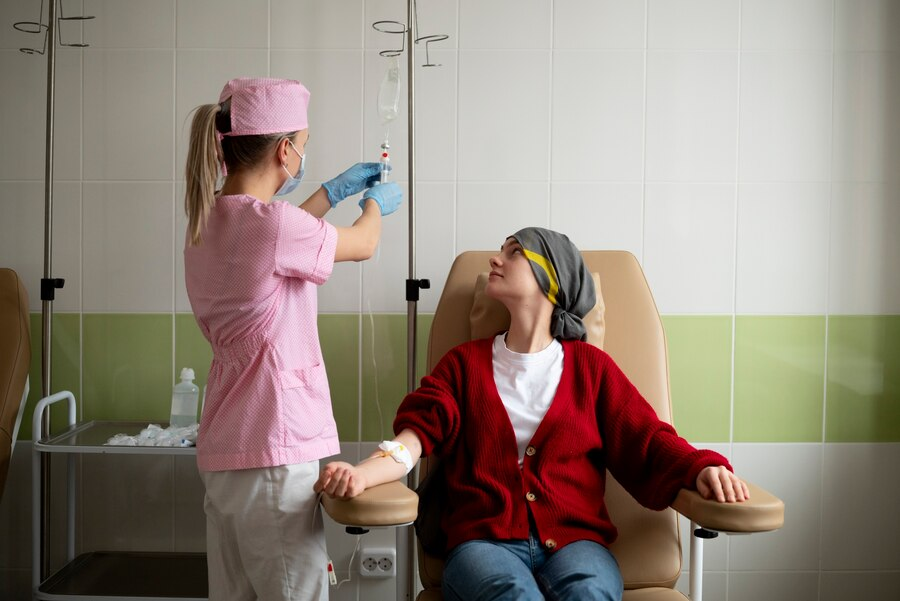Screening for Cancers in Women

Regular cancer screenings are fundamental to women’s health, offering a proactive approach to early detection and intervention. Dr. Swathi Women’s Clinic is dedicated to providing comprehensive care, emphasizing the importance of cancer screening for women. This educational content aims to highlight the significance of cancer screenings and the common treatments offered at our clinic for various gynecological disorders.
The Importance of Cancer Screenings:
Cancer screenings are essential tools for detecting abnormalities or early signs of cancer before symptoms manifest. Early detection enables timely intervention, often resulting in more effective treatment and improved outcomes. At Dr. Swathi Women’s Clinic, we emphasize the following key cancer screenings for women:
- Pap Smear for Cervical Cancer:
- Pap smears involve collecting cells from the cervix to identify abnormalities.
- Regular screenings help detect precancerous changes or early-stage cervical cancer.
- Mammograms for Breast Cancer:
- Mammograms are X-ray images of the breast tissue, used to detect early signs of breast cancer.
- Annual mammograms are recommended for women starting at a certain age, with earlier screenings for those with higher risk factors.
- Pelvic Exams:
- Pelvic exams involve a physical examination of the pelvic organs, including the ovaries, uterus, and cervix.
- These exams can help detect abnormalities, such as ovarian cysts or fibroids.
- HPV Testing:
- Human Papillomavirus (HPV) testing is often performed in conjunction with Pap smears to identify high-risk HPV strains linked to cervical cancer.
- Vaccination against HPV is also a preventive measure.
- Colorectal Cancer Screenings:
- Colonoscopies or other tests are recommended for colorectal cancer screening.
- Regular screenings are crucial, especially for individuals with a family history of colorectal cancer.
Common Treatments Offered at Dr. Swathi Women’s Clinic:
- Cancer Treatments:
- Surgery: Removal of tumors or affected tissues, often the primary treatment for localized cancers.
- Chemotherapy: Systemic treatment using drugs to kill cancer cells or inhibit their growth.
- Radiation Therapy: Precise beams of radiation directed at cancerous tissues to destroy or shrink tumors.
- Hormone Therapy:
- Utilized for hormone-sensitive cancers like breast or uterine cancer.
- Involves medications that block or inhibit hormone receptors on cancer cells.
- Targeted Therapies:
- Monoclonal Antibodies: Target specific proteins on cancer cells, enhancing the body’s immune response.
- Tyrosine Kinase Inhibitors: Disrupt signals promoting cancer cell growth.
- Immunotherapy:
- Stimulates the immune system to recognize and attack cancer cells.
- Particularly relevant for certain gynecological cancers.
- Minimally Invasive Procedures:
- Laparoscopy: Minimally invasive surgery using small incisions and a camera for visualization.
- Hysteroscopy: Visual examination of the uterus using a thin, lighted tube.
- Genetic Counseling and Testing:
- Identifies hereditary factors contributing to cancer risk.
- Guides personalized treatment plans based on genetic findings.
Preventing Complications:
Proactive cancer screenings, combined with a healthy lifestyle and awareness of individual risk factors, play a vital role in preventing complications. Regular check-ups, open communication with healthcare providers, and adherence to recommended screenings contribute to positive outcomes.
Conclusion:
At Dr. Swathi Women’s Clinic, we recognize the transformative impact of cancer screenings on women’s health. Our dedicated team is committed to providing personalized and comprehensive care, emphasizing the significance of proactive screenings and early intervention. By actively participating in your care, undergoing recommended screenings, and maintaining open communication, you can navigate through gynecological disorders with confidence. For any questions or concerns, please reach out to our team at Dr. Swathi Women’s Clinic. Your health and well-being are our top priorities.


